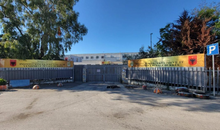
 Flash News
Flash News
Drenova prison police officer arrested for bringing drugs and illegal items into cell
Lavrov: NATO is risking self-destruction with new military budget
Kurti and Vučić "face off" tomorrow in Skopje
Construction worker dies after falling from scaffolding in Berat
The prosecution sends two Korça Municipality officials to trial
Sudan recognized Kosovo, REL: Why was the validity of this recognition contested?
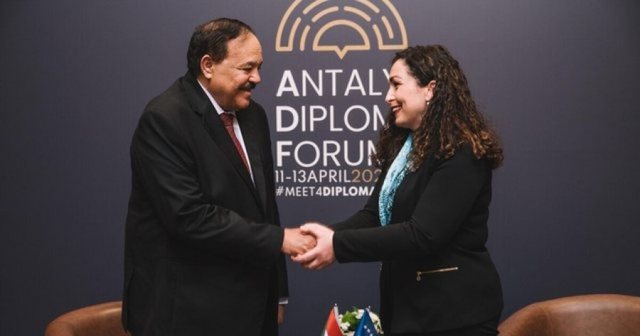
On April 12, Kosovo’s President Vjosa Osmani announced that Sudan had become the 119th country to recognize Kosovo’s independence. Just 24 hours later, Serbia’s Foreign Ministry questioned the legitimacy of the “current government” in Sudan to make such decisions. In the past two years, Sudan has been facing what the United Nations (UN) calls the world’s largest famine crisis. Tens of thousands of people have been killed and over 13 million have been forced from their homes.
All this has been caused by a power struggle between the military chief, Abdel Fattah al-Burhan, and his former deputy, Mohamed Hamdan Dagalo, who now leads the Rapid Support Forces (RSF). President Osmani secured recognition of independence during a meeting with Sudanese Foreign Minister Ali Yousif Ahmed Al Sharif, who is part of the government led by Al-Burhan. Since then, their opponents, the RSF led by Dagalo, have announced that they are forming their own government for Sudan, with which they will govern the regions they control.
Dagalo - who is under US sanctions over allegations that his forces committed genocide in Sudan's Darfur region - said on April 16 that he and his allies were creating "a 15-member presidential council" representing all regions of Sudan. The decision was not welcomed by the UN, which immediately responded that the priority should be to preserve Sudan's unity and sovereignty and that creating a parallel government would not help resolve the problem.
The RSF's attempt to create a parallel government has also been opposed by many countries, including the US. Serbia has alluded to this political situation in Sudan when it questioned the legitimacy of recognizing Kosovo's independence. However, even after the start of the war on April 15, 2023 in Sudan, the cabinet of Sudan's "de facto" leader, Al-Burhan, has continued to play its usual role. The Foreign Minister himself, Al Sharif, who confirmed the recognition of independence by Sudan in the meeting with Osmani, has also met with Russian Foreign Minister Sergey Lavrov this year.
According to the Russian Foreign Ministry, the meeting discussed “ways to strengthen cooperation between Russia and Sudan in various fields.” Since Kosovo’s declaration of independence on February 17, 2008, Serbia has consistently opposed third-party recognition of Kosovo’s independence, citing compliance with United Nations Security Council Resolution 1244. Serbia argues that this Resolution provides for Kosovo’s status to be resolved through negotiations with Serbia and for temporary self-government under the supervision of the UN Mission in Kosovo, UNMIK.
But in 2010, the International Court of Justice ruled that Kosovo's independence did not violate international law. Kosovo responded to these Serbian reactions by calling on the European Union and international partners to address Serbia's statements, which the Kosovo Ministry of Foreign Affairs and Diaspora (MFA) considers a violation of the Brussels Agreement. The MFA is based on two articles of the Brussels Agreement, which obliged Kosovo and Serbia to "develop normal, good-neighborly relations with each other on the basis of equal rights" and which stipulated that Serbia "shall not block nor encourage others to block Kosovo's membership in international organizations."
"Serbia's attempt to discredit Sudan's sovereign decision is not only a violation of its commitments within the framework of the dialogue, but also an insult to Sudan's sovereignty and the fundamental principles of international law," the MFA statement, published on April 15, said.
Similar reactions and counter-reactions were also caused after the recognition of independence by Kenya at the end of March this year. Serbia was called to Resolution 1244, while Kosovo responded that it was violating the Brussels Agreement. Expert Gëzim Visoka, professor of Peace and Conflict Studies at the University of Dublin in Ireland, said that he hopes that the recognition by Kenya will be a “turning point” in Kosovo’s diplomacy, as the previous recognition was that of Israel in 2021.
"Recognition by Kenya represents a good opportunity for the Government of Kosovo, but also for other engaged actors, to regain momentum and work sustainably and strategically to conclude the process of international recognition of Kosovo," Visoka told REL./ REL
Latest news



Second hearing on the protected areas law, Zhupa: Unconstitutional and dangerous
2025-06-30 22:18:46



Israel-Iran conflict, Bushati: Albanians should be concerned
2025-06-30 21:32:42

Fuga: Journalism in Albania today in severe crisis
2025-06-30 21:07:11
"There is no room for panic"/ Moore: Serbia does not dare to attack Kosovo!
2025-06-30 20:49:53

Temperatures above 40 degrees, France closes nuclear plants and schools
2025-06-30 20:28:42
Lavrov: NATO is risking self-destruction with new military budget
2025-06-30 20:13:54
Turkey against the "Bektashi state" in Albania: Give up this idea!
2025-06-30 20:03:24

Accused of sexual abuse, producer Diddy awaits court decision
2025-06-30 19:40:44



Kurti and Vučić "face off" tomorrow in Skopje
2025-06-30 18:44:12
Tourism: new season, old problems
2025-06-30 18:27:23


Construction worker dies after falling from scaffolding in Berat
2025-06-30 17:51:44




Almost free housing: East Germany against depopulation
2025-06-30 16:43:06

Hamas says nearly 60 people killed in Gaza as Trump calls for ceasefire
2025-06-30 16:14:15
Drownings on beaches/ Expert Softa: Negligence and incompetence by institutions!
2025-06-30 16:00:03


European ports are overloaded due to Trump tariffs
2025-06-30 15:30:44
The prosecution sends two Korça Municipality officials to trial
2025-06-30 15:19:54

Lezha/ Police impose 3165 administrative measures, handcuff 19 drivers
2025-06-30 14:55:04
Young people leave Albania in search of a more sustainable future
2025-06-30 14:47:52
Record-breaking summer, health threats and preventive measures
2025-06-30 14:36:19


Constitution of the Parliament, Osmani invites political leaders to a meeting
2025-06-30 14:07:54

Heat wave 'invades' Europe, Spain records temperatures up to 46 degrees Celsius
2025-06-30 13:42:02
Accident in Vlora, car hits 2 tourists
2025-06-30 13:32:16

Kurti confirms participation in today's official dinner in Skopje
2025-06-30 13:03:27

Fight between 4 minors in Kosovo, one of them injured with a knife
2025-06-30 12:38:45

Report: Teenage girls the loneliest in the world
2025-06-30 12:20:40
Commissioner Kos and Balkan leaders meet in Skopje on Growth Plan
2025-06-30 12:07:59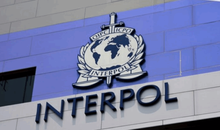
Wanted by Italy, member of a criminal organization captured in Fier
2025-06-30 11:55:53
Hundreds of families displaced by wave of Israeli airstrikes in Gaza
2025-06-30 11:45:17
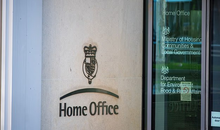
Zenel Beshi: The criminal who even 50 convictions won't move from Britain
2025-06-30 11:23:19
A new variant of Covid will circulate during the summer, here are the symptoms
2025-06-30 11:14:58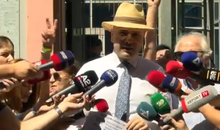

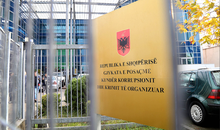
"Partizani" case, trial postponed to July 21 at the Special Court
2025-06-30 10:41:05
Uncontrolled desire to steal, what is kleptomania, why is it caused
2025-06-30 10:30:08
Requested change of security measure, hearing for Malltez postponed to July 7
2025-06-30 10:24:32
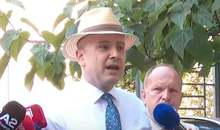

Output per working hour in Albania 35% lower than the regional average
2025-06-30 09:54:35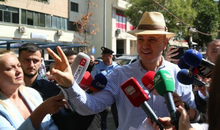

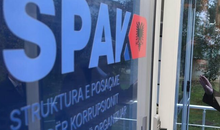
The trial for the "Partizani" file begins today
2025-06-30 09:27:57
22 fires in the last 24 hours in the country, 2 still active
2025-06-30 09:21:28
How is the media controlled? The 'Rama' case and government propaganda
2025-06-30 09:13:36
German top diplomat: Putin wants Ukraine to capitulate
2025-06-30 09:00:07
Foreign exchange, how much foreign currencies are sold and bought today
2025-06-30 08:44:38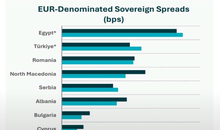
Chart/ Sovereign risk for Albania from international markets drops significantly
2025-06-30 08:26:38
Horoscope, what do the stars have in store for you?
2025-06-30 08:11:44
Clear weather and passing clouds, here is the forecast for this Monday
2025-06-30 07:59:32
Morning Post/ In 2 lines: What mattered yesterday in Albania
2025-06-30 07:47:37
Milan make official two departures in attack
2025-06-29 21:57:23
6 record tone
2025-06-29 21:30:46
4-year-old girl falls from balcony in Lezha, urgently taken to Trauma
2025-06-29 21:09:58
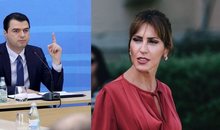

Assets worth 12 million euros seized from cocaine trafficking organization
2025-06-29 19:39:43
Fire in Durrës, Blushi: The state exists only on paper
2025-06-29 19:17:48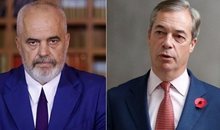

Fire endangers homes in Vlora, helicopter intervention begins
2025-06-29 18:27:51
France implements smoking ban on beaches and parks
2025-06-29 18:02:08
England U-21 beat Germany to become European champions
2025-06-29 17:42:49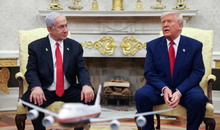
Trump criticizes Israeli prosecutors over Netanyahu's corruption trial
2025-06-29 17:08:10
Street market in Durrës engulfed in flames
2025-06-29 16:52:57
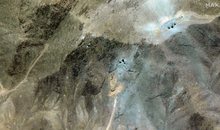
UN nuclear chief: Iran could resume uranium enrichment within months
2025-06-29 16:03:24
Albanian man dies after falling from cliff while climbing mountain in Italy
2025-06-29 15:52:01

Another accident with a single-track vehicle in Tirana, a car hits a 17-year-old
2025-06-29 15:07:15
While bathing in the sea, a vacationer in Durrës dies
2025-06-29 14:54:01
Sentenced to life imprisonment, cell phone found in Laert Haxhiu's cell
2025-06-29 14:26:40
77 people detained in protest, Vučić warns of new arrests
2025-06-29 14:07:46
